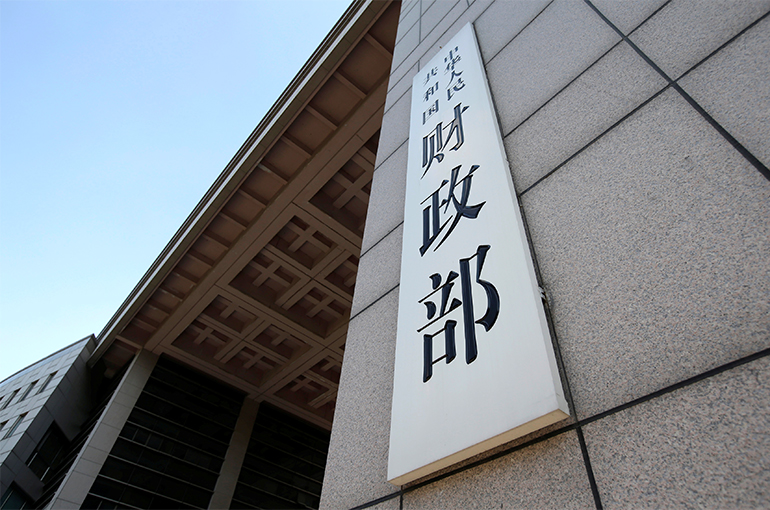 China’s Fiscal Revenue Should Pick Up Soon After Slumping in First Seven Months, Finance Ministry Official Says
China’s Fiscal Revenue Should Pick Up Soon After Slumping in First Seven Months, Finance Ministry Official Says(Yicai) Aug. 26 -- China’s fiscal revenue will rise in months to come, despite tumbling in the first seven months, as macro-economic policies take effect, the economic recovery becomes more solid, and the impact of special factors such as tax cuts recedes, an official from the Ministry of Finance said.
The national general public budget revenue, which consists of tax and non-tax revenue, dipped 2.6 percent in the first seven months from a year ago to CNY13.5 trillion (USD1.9 trillion), which is in line with the first half of the year, according to statistics released by the Ministry of Finance today.
The drop in revenue has to do with slow economic growth as well as the government’s decision to cut taxes and fees in the middle of last year, the ministry said. Without this special factor, revenue would have climbed 1.2 percent over the period.
Of the national general public budget revenue, the tax haul sank 5.4 percent to CNY11.1 trillion (USD1.5 trillion), while non-tax revenue, which refers to income from the paid use of state-owned resources, fines and other sources, surged 12 percent to CNY2.4 trillion, the ministry said.
The slowdown in tax revenue growth has to do with weak economic growth in addition to the tax rebates, said Luo Zhiheng, chief economist at Yuekai Securities. Also prices are sliding and the prices of some forms of energy and minerals are going down.
Non-tax revenue, though, has been rising rapidly this year as local governments vitalize existing assets and resources. Jilin province, for example, earned CNY24.7 billion (USD3.4 billion) in non-tax revenue in the first seven months, up 29.5 percent from a year ago, according to data from the province’s department of finance.
The northeastern province’s revenue from the paid use of state-owned resources surged 53.7 percent to CNY10.8 billion (USD1.5 billion), while its income from fines and confiscations soared 45.9 percent to CNY3.5 billion. A lot of this came from major cases such as online gambling and fraud as well as inspections and supervisions paid into the province’s treasury.
Local governments’ revenue from the sale of land use rights has been sliding due to the sluggish real estate market, and this is a major reason for the drop in the national government fund budget revenue. Income from the sale of state-owned land use rights plunged 22.3 percent from January to July year on year to CNY1.7 trillion (USD238.8 billion), according to MOF statistics.
The government’s expenditure, on the other hand, is increasing. The national general public budget expenditure climbed 2.5 percent in the first seven months to CNY15.5 trillion (USD2.1 trillion), the ministry said. Social security and employment expenditure advanced 4.3 percent, while agriculture, forestry and water expenditure jumped 8.2 percent, and urban and rural community expenditure surged 7.2 percent.
The national general public budget expenditure will grow steadily in months to come, the official said.
The national government fund budget revenue plunged 18.5 percent to CNY2.3 trillion (USD323 billion), slightly more than in the first half, the ministry added.
Editor: Kim Taylor